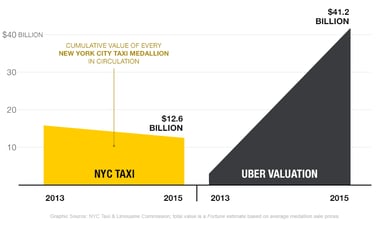Here's why we ask:
Interest in our Strategic Management & Planning tool has grown steadily since we launched, yet there are still plenty of solid prospects who watch a video, read a blog post, or listen to an in-person sales pitch and say "We don't really need that."
"Are you an industry of one?" we ask.
"No," they say.
"Do you compete for your customer and clients?"
"Yes."
"Do you think you would be more successful if you knew your competitive strengths and weaknesses?"
"Of course."
"Then why the hesitation?"
"Um... well... uh..."
First, we have to acknowledge that some degree of skepticism is to be expected because even though we think our tool helps companies improve their growth, value and profitability by becoming more competitive, we're not giving it away free, leaving some to wonder if there's a catch.
(There isn't.)
What's interesting is that when we talk through these objections, we find they almost always trace back to the same thing: an almost gut-level susupicion of what data will make people do.
It's like there's a fear that hardcore performance data is some kind of demonic force, or mutant zombie virus that will instantly seize control of anyone it comes in contact with:
EMPLOYEES: Why are you firing everyone right before the big seasonal push?
OWNER: Because the data said I had to.
EMPLOYEES: But that's crazy!
OWNER: I know, but I just couldn't stop myself.
An exaggeration? Yes.
But it makes the point: data doesn't replace common sense.
Or reason.
Or logic.
(Or whatever you call it when you do something you know isn't great, or even sometimes good, but represents a kind of lowest-common-denominator compromise that solves more problems than it creates and makes key stakeholders happy.)





